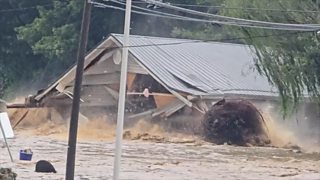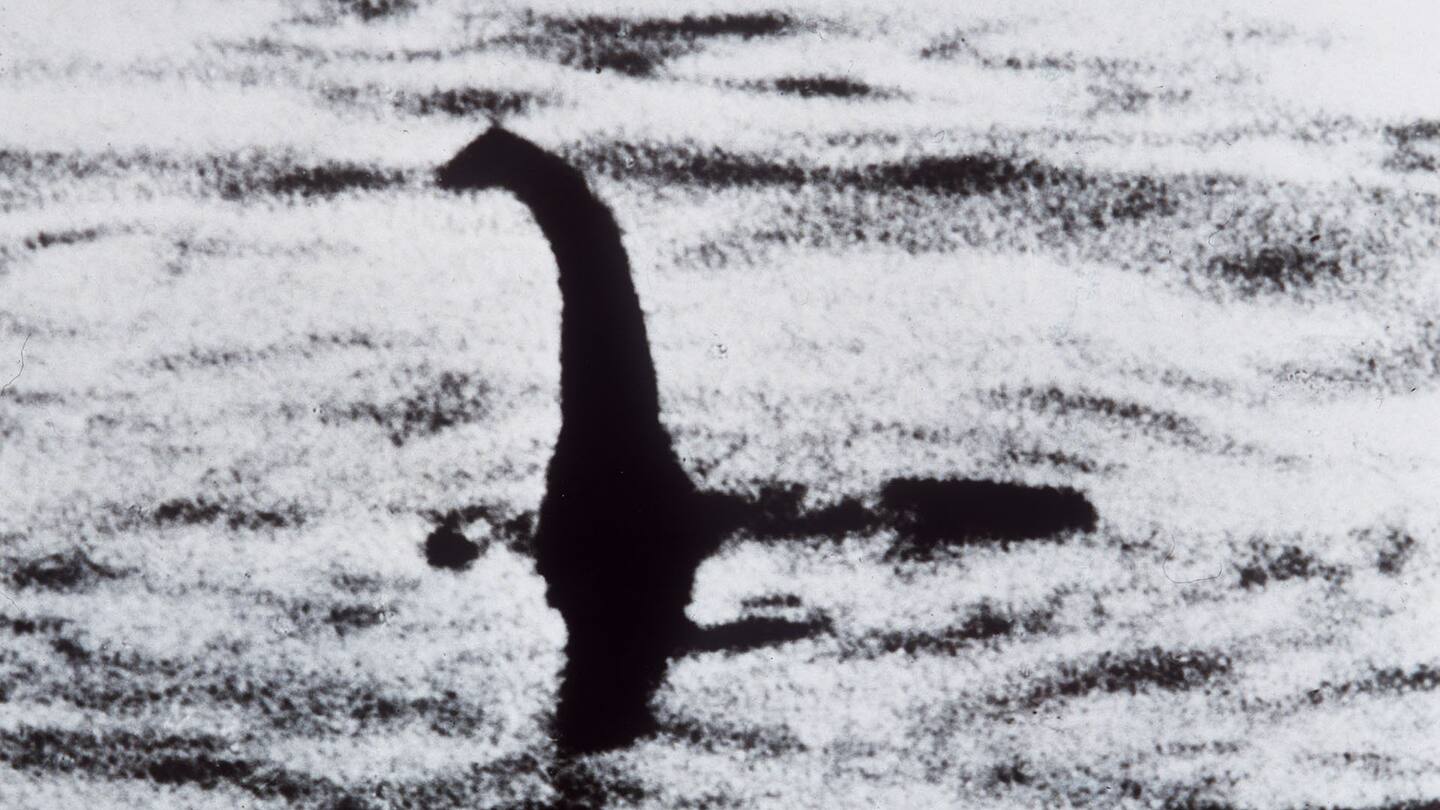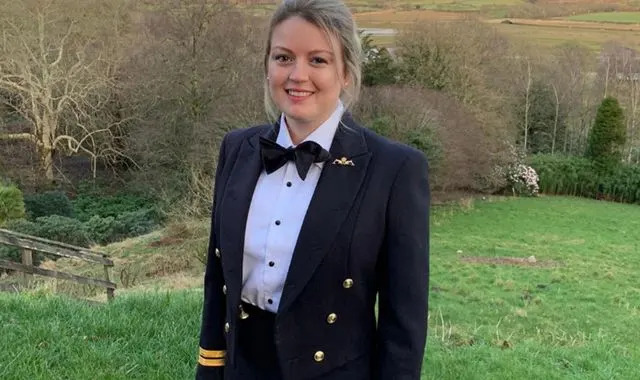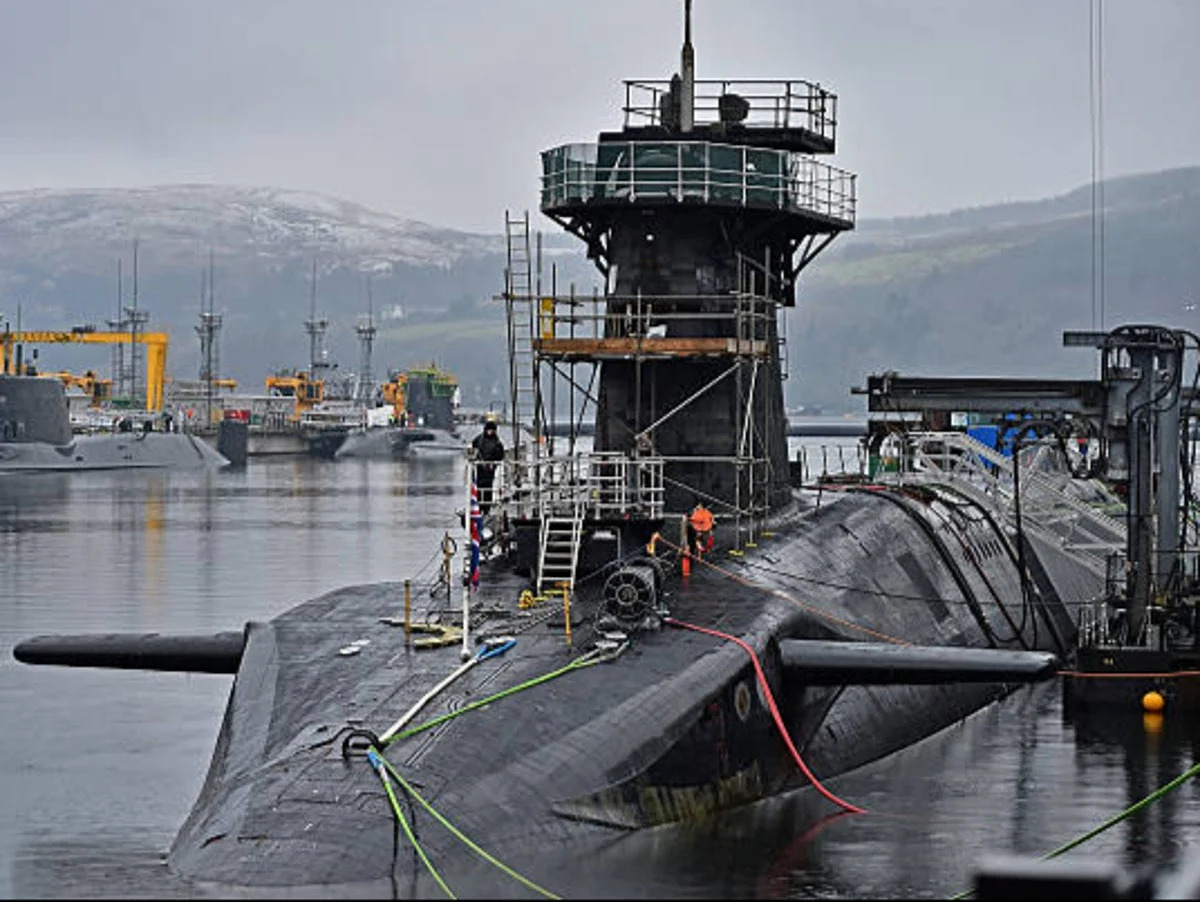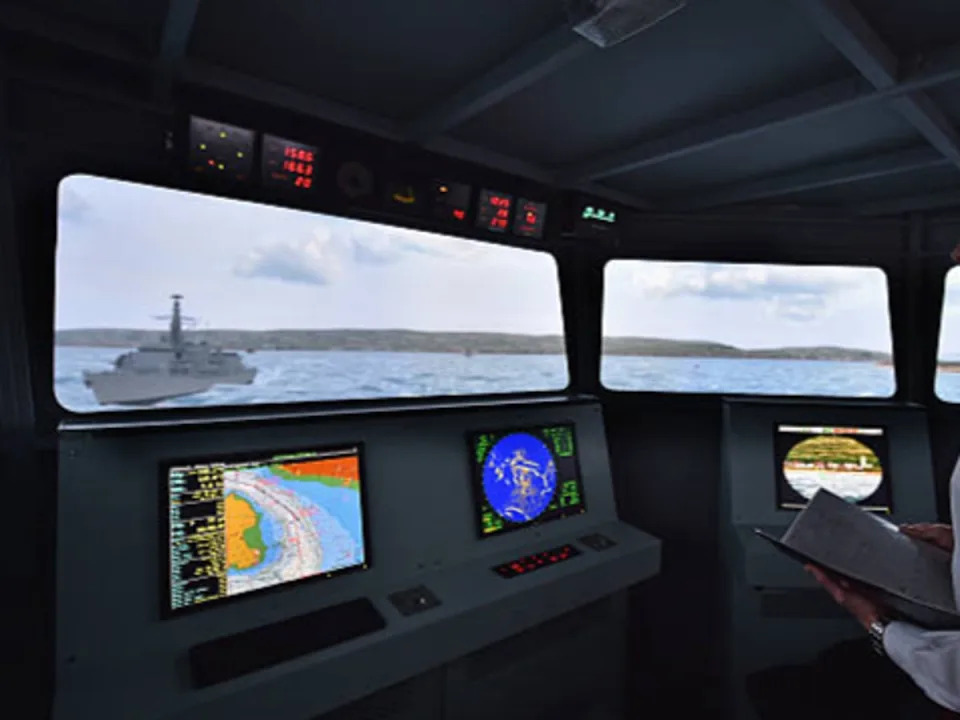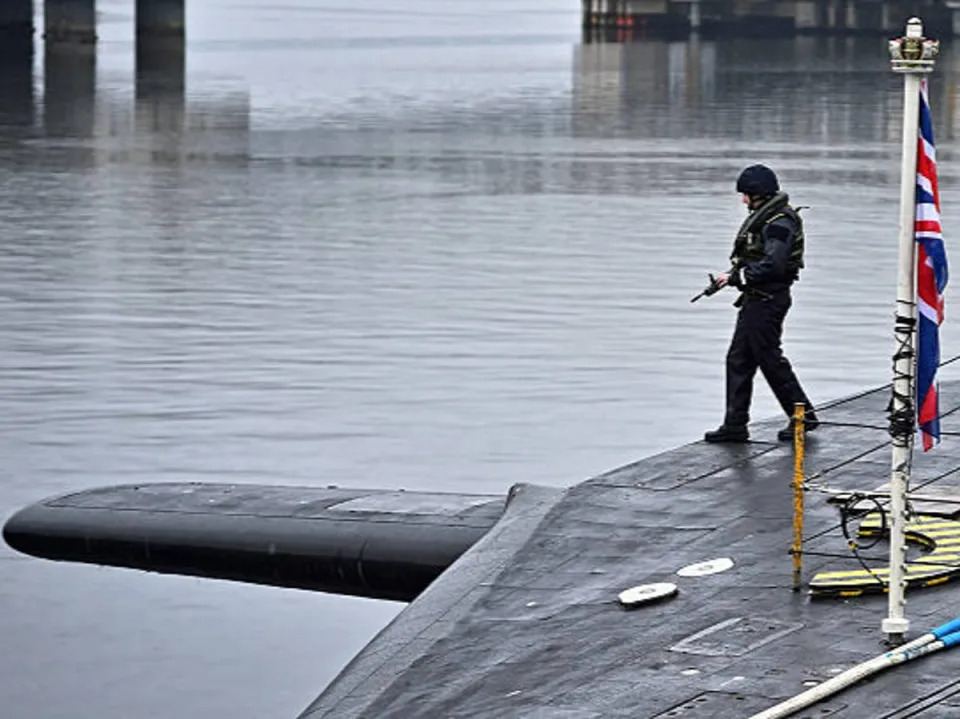Chagos diaspora angry at lack of input on islands' fate
Marie HEUCLIN
Fri 4 October 2024
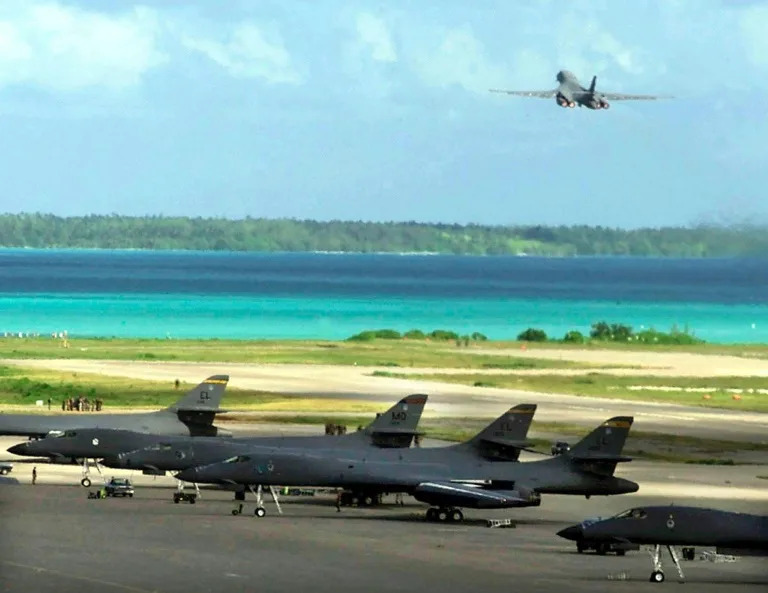
Diego Garcia in the Indian Ocean is one of the most important US military bases and was used for wars in Afghanistan and Iraq
Raymonde Desiree was 25 when she was forced to leave her native Chagos Islands as Britain emptied the Indian Ocean archipelago of its inhabitants to make way for a strategic military base.
Fifty-one years later, the petite matriarch says she, like many Chagossians living in Britain, is angry at not being given a say in the islands' fate as they are now handed over to Mauritius.
Britain announced Thursday that it would transfer sovereignty of the remote archipelago but keep the joint American-British base on Diego Garcia island, an agreement US President Joe Biden hailed as "historic".
But in Crawley, a town south of London that is home to a large Chagossian community, members of the diaspora described the announcement as the latest in a long line of injustices.
Desiree recalled giving birth to her first child on the boat that took her to the Seychelles from the Chagos Islands, as Britain emptied the archipelago of its inhabitants shortly after granting independence to Mauritius -- but not the Chagos -- in 1968.
From there, she was sent to Mauritius, where she "suffered", especially from discrimination, she told AFP through an interpreter, speaking her native Creole.
Granted British citizenship, like the other roughly 2,000 Chagos inhabitants who were expelled, she eventually moved to Britain in 2004.
She said the new deal left her "saddened".
"When I was born, the Chagos Islands weren't under Mauritius," she said.
"I will never be Mauritian," said Jemmy Simon, 36, whose grandparents were among those expelled from the Chagos.
Despite her British passport, "I'm Chagossian," she said.
"Going back to the Chagos Islands under Mauritian rule, that's not going to happen. We were not consulted... They should have given us the right of self-determination."
- 'Uprooted' -
The deal aims to put to rest half a century of legal battles over the islands.
It comes after the International Court of Justice recommended in 2019 that Britain hand them over.
During the hearings, Britain apologised for the "shameful" eviction of islanders. But it ignored the ICJ ruling at the time.
Under the agreement, members of the Chagossian diaspora will be allowed to return -- though not to Diego Garcia, the largest of the archipelago's roughly 50 islands.
But "that's where my parents are from", said Marilyn Ladouceur, 65, adding that the deal had left her "extremely angry".
Born in Mauritius, she recalled an impoverished childhood there before moving to Britain in 2004.
The deal, she said, will turn the Chagos Islands "into another Mauritius".
United Nations human rights chief Volker Turk on Friday urged Britain and Mauritius to make sure the ensuing treaty cementing the deal will "fully embrace human-rights driven solutions to the outstanding issues of remedy and reparation of the wrongs of the past".
It should "enable the Chagossian people to return to their ancestral territories... (and) build sustainable and prosperous futures", he said in a statement.
But beyond the difficulties of repopulating a remote archipelago and despite the promise of financial assistance under the deal, a return looks unlikely for many Chagossians now living in Britain.
Louis Vivian Marie, 72, said he had felt "uprooted" ever since leaving the islands at seven or eight years old.
"How can such a thing happen?" he says he still wonders.
But he says he plans to stay in Britain with his Mauritius-born wife, who is applying for British citizenship.
Desiree, meanwhile, has abandoned her dream of returning.
"I'm too old," she said, adding she was also unsure in what kind of condition she would find her long-deserted island.
mhc/alm/fjb/jhb/js
UK cedes Chagos Islands to Mauritius in deal securing Diego Garcia military base
NEWS WIRES
Thu 3 October 2024

The UK agreed on Thursday to renounce sovereignty of the Chagos Islands, an archipelago of more than 60 islands in the Indian Ocean, but agreed a deal with Mauritius to secure the future of a UK-US military base on the island of Diego Garcia.
The British government agreed Thursday to hand sovereignty of the long-contested Chagos Islands, an archipelago of more than 60 islands in the Indian Ocean, to Mauritius, in a deal to secure the future of a strategically important U.K.-U.S. military base.
British Foreign Secretary David Lammy said the agreement will secure the future of the base at Diego Garcia, the largest in the chain of remote islands off the tip of India that has been under British control for over 50 years.
The base, which is home to around 2,500 personnel, mainly Americans, has been involved in military operations including the 2003 war in Iraq and the long-running war in Afghanistan.
Britain's Labour government said without the deal the secure operation of the military base would be under threat, with contested sovereignty and legal challenges, including through various international courts and tribunals.
The agreement also paves the way for the potential return of the few people still alive who were forcibly displaced from their homes on the islands decades ago.
Where are the Chagos Islands, why has the UK given them to Mauritius and what about the Falklands?
William Mata
Fri 4 October 2024
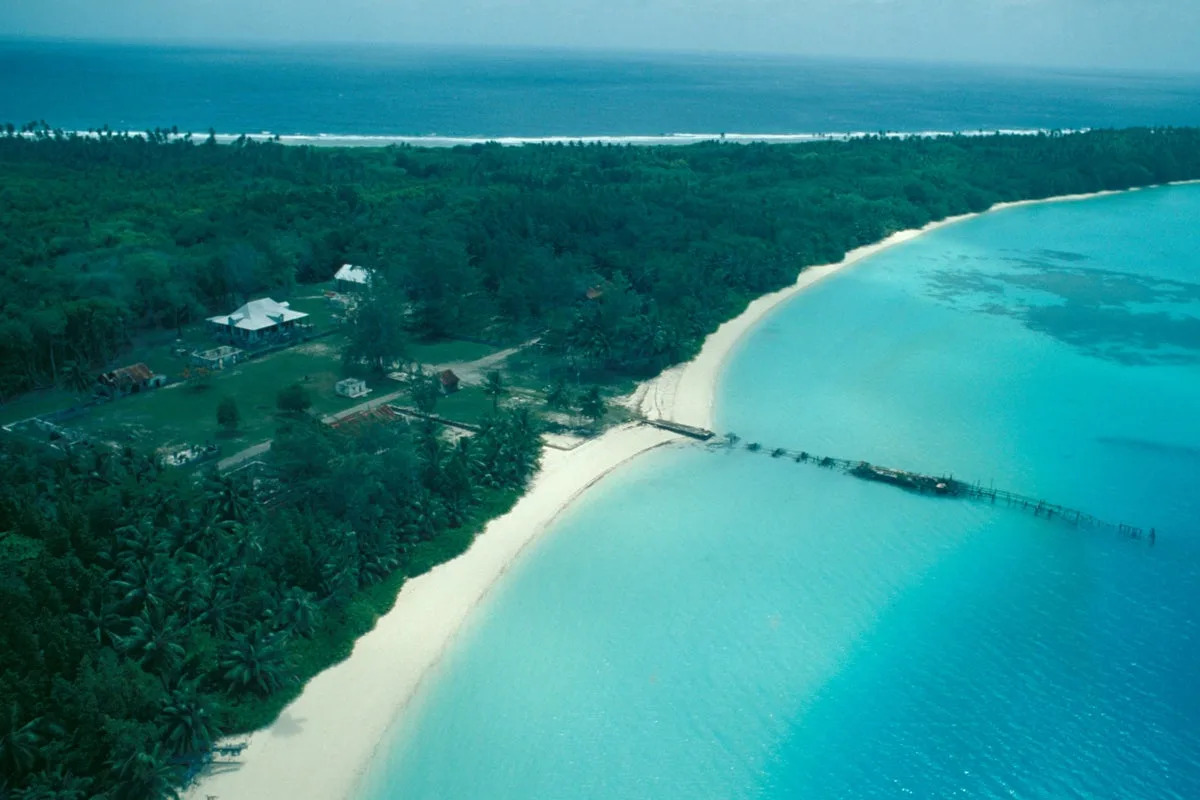
Where are the Chagos Islands, why has the UK given them to Mauritius and what about the Falklands?
The UK Government has reached a political agreement to allow Mauritius to take sovereignty over the Chagos Islands.
The historic agreement struck this week means Mauritius will assume sovereignty over the archipelago while the joint US-UK military base remains on Diego Garcia island.
Reaction to the deal was mixed, with some hailing the end to a bitter and long-running dispute over Britain's last African colony.
But others, including Tory leadership candidates, suggested it could undermine UK security.
Here is what it means.
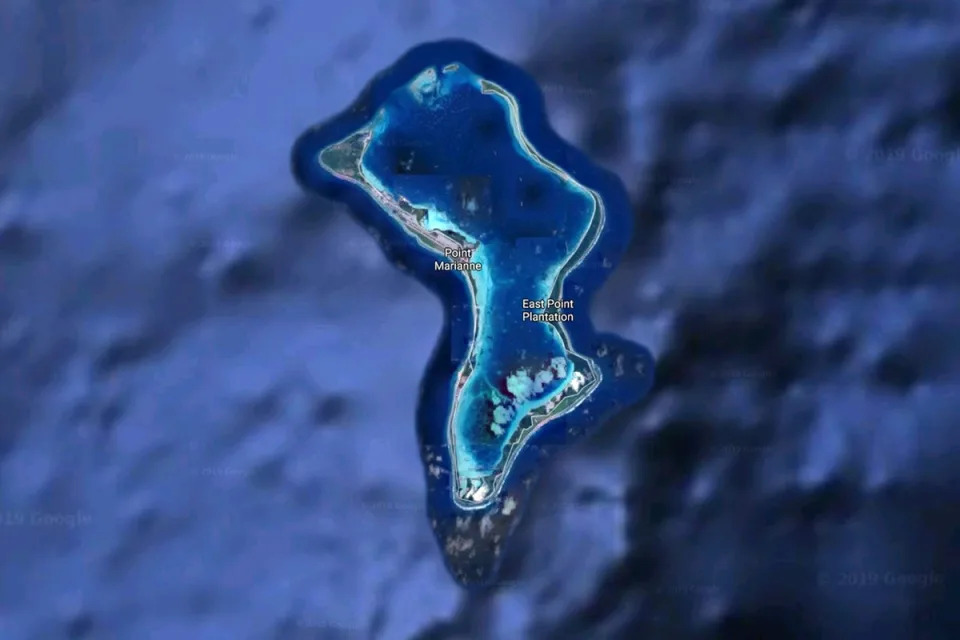
The Chagos Islands (Google Maps)
Where are the Chagos Islands?
The chain of Indian Ocean islands are claimed by Mauritius but are actually more than 2,000km away from the African nation.
Chagos has seven atolls and around 60 islands; of these, Diego Garcia is by far the largest.
Mauritius is an island off the east coast of Madagascar, also an island, which is off the coast of south-east Africa.
Chagos archipelago is a strategic point in the Indian Ocean between Africa and India, which is why it is a useful spot for nations seeking regional influence.
Around 3,000 people live on the islands, who are mostly British and American servicemen.
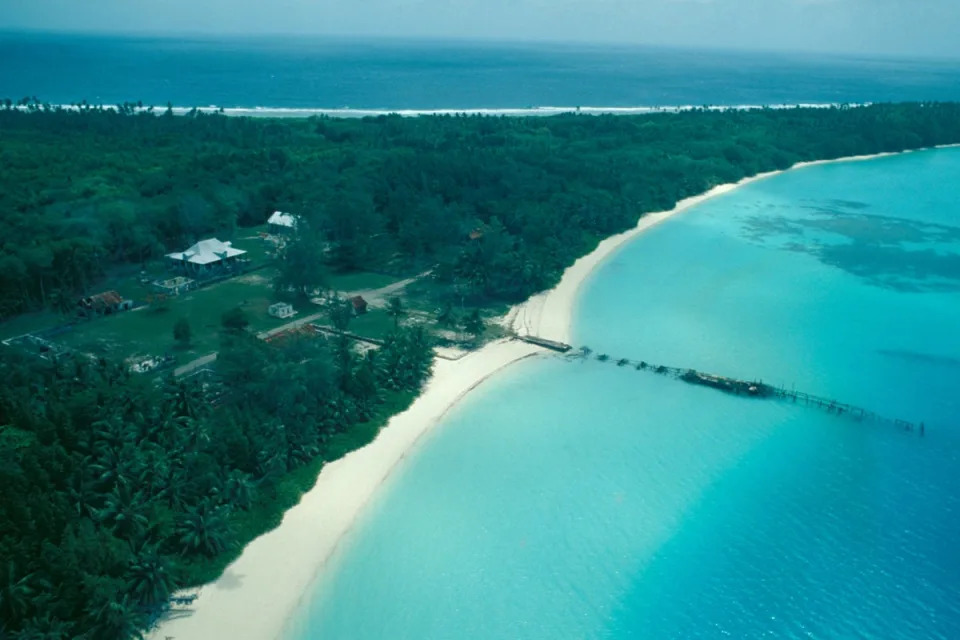
Britain is giving up sovereignty of the Chagos Islands in the Indian Ocean in return for securing the long-term future of a strategically important military base (John Parker/Sylvia Cordaiy Photo Library Ltd/Alamy/PA)
How did the UK come to have the islands?
The islands were home to the Chagossian people before they were expelled in the Sixties and Seventies by the US and UK governments as they established an airbase on Diego Garcia.
The Chagossians mostly then settled in Mauritius and have not been allowed back since, although the new agreement paves the way for their return.

There is a joint UK-US military base on Diego Garcia, part of the cluster of islands in the Indian Ocean that makes up the Chagos Islands (PA Media)
Why has Britain handed it to Mauritius?
Human rights campaigners, who have called for full reparations to generations affected by the forcible displacement of islanders, argued the deal does not go far enough to address the wrongs of the past.
Chagossians were forced to leave the central Indian Ocean territory in the Sixties and Seventies to make way for the military base.
The expulsions are regarded as a shameful parts of Britain's modern colonial history and Chagossians have spent decades fighting to return to the islands.
The United Nations' highest court, the International Court of Justice, previously ruled the UK's administration of the territory was unlawful and must end.
A joint statement from the UK and Mauritius governments said the new deal will be subject to a treaty that will "address wrongs of the past and demonstrate the commitment of both parties to support the welfare of Chagossians".
The Foreign Office said the agreement means the status of the base will be undisputed and legally secure.
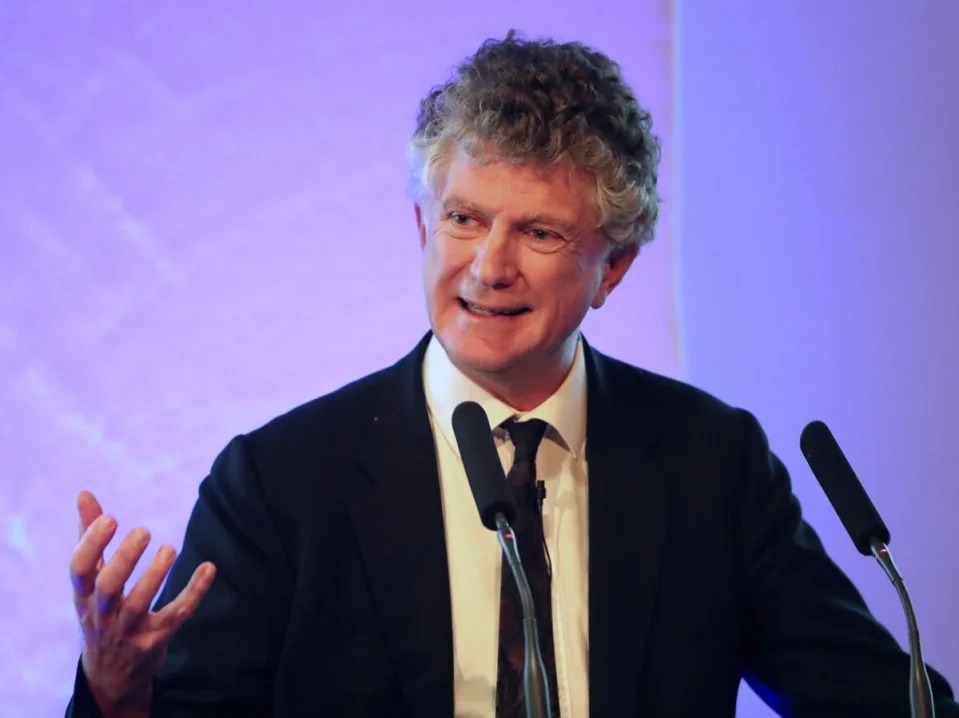
Former Downing Street chief of staff Jonathan Powell (PA Archive)
Could China now develop a base?
There have been concerns raised by Labour’s political opponents that the agreement will allow China to develop influence in the area.
Former foreign secretary James Cleverly described the move as "weak, weak, weak" while former security minister Tom Tugendhat suggested it risked allowing China to gain a military foothold in the Indian Ocean.
Jonathan Powell, the prime minister's special envoy for negotiations between the UK and Mauritius, said China would not be able to develop a base in the Chagos Islands.
He said United States officials have been "intimately involved" in the negotiations, telling Times Radio: "Every single sentence and paragraph has been through an inter-agency process, all of the agencies in Washington. We've secured all of their red lines in that negotiation.
"When you come to see the detailed treaty, which is really quite long with the exchanges of letters, you'll see that this idea of a Chinese base is just hooey. It can't happen, won't happen.”
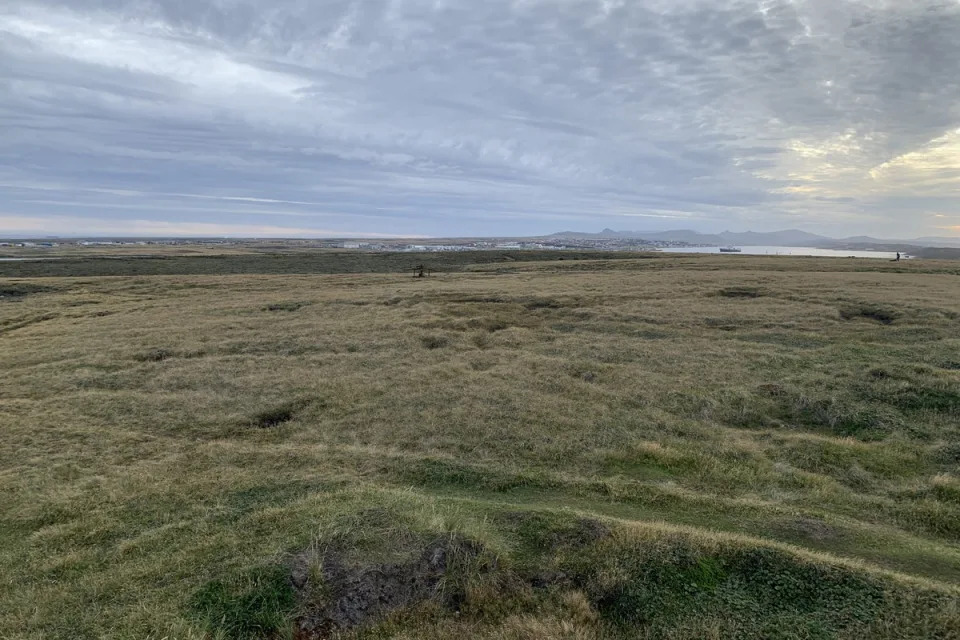
The treeless landscape of the Falkland Islands (PA Media)
Will the UK now hand back the Falkland Islands to Argentina?
After the UK agreed to return the Chagos Islands, the Argentine foreign minister, Diana Mondino, said it is time to take steps for the Malvinas (as the Argentinians call the islands) are returned.
"We welcome this step in the right direction and the end to outdated practices,” she said.
“Following the path we have already taken, with concrete actions and not empty rhetoric, we will recover full sovereignty over our Malvinas Islands.
"The Malvinas were, are and will always be Argentine."
Argentina has long wanted back the Falklands but residents of the islands voted 99 per cent in favour of remaining part of the UK in 2013.
In a statement earlier on Thursday, Falklands governor Alison Blake sought to reassure residents that Britain's commitment to the South Atlantic territory was "unwavering".
She said the historical context of the two territories was "very different".
What other territories does the UK have?
British overseas territories are listed by the government as:
Anguilla
Ascension
Bermuda
British Virgin Islands
Cayman Islands
Falkland Islands
Gibraltar
Montserrat
St Helena
Tristan da Cunha
Turks and Caicos Islands

